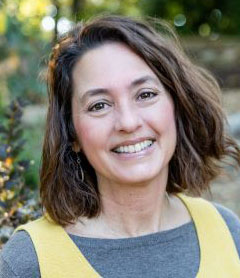So two related things happened this past week: I finished a book by Harvard business professor Clayton Christensen — “Competing Against Luck: The Story of Innovation and Customer Choice,” — one of the books recommended during the Data-Driven Innovation Boot Camp at RAMP, the new business accelerator in downtown Roanoke. I wrote about my top takeaway from that training here. I attended the 5th annual Instructional Technology Mini-Conference here on the Virginia Western campus. Our own Dr. Carrie Halpin has done an amazing job organizing these annual summer conferences, which have been funded by the Paul Lee Professional Development grant from the VCCS. The keynote speaker was Dr. Barbara Lockee, a professor from the Instructional Design and Technology program at Virginia Tech. Her keynote focused on adult online learners. Honestly, I could write essays about each of those experiences and how they relate to Virginia Western, but I wanted to boil down some highlights into three powerful numbers specifically about online learning: 1. Dr. Barbara Lockee of Virginia Tech presents the keynote talk during the 5th annual Instructional Technology Mini-Conference, held July 13 at Virginia Western Community College. First, the ugly number: Research shows completion rates of less than 20%… Continue Reading 3 numbers that blew my mind about online learningRead More
So I’ve probably mentioned that I have an “Idea Shelf” in my office. This is a whiteboard where I collect all kinds of random ideas as they might relate to this community college, ranging from outdoor preschools to a trades academy for historic renovation to a “Made in Roanoke” fair. I love ideas. I *live* for cool ideas. But ideas aren’t the only important ingredients when it comes to innovation. Earlier in June, I had the privilege of attending a Data-Driven Innovation Boot Camp at RAMP, the new business accelerator in downtown Roanoke (which features a nifty mural designed by our own Joe Collins). There was a lot to cover in two days’ worth of presentations by Mike Abbott and Lisa Garcia, who both teach NSF Innovation Corps programming to Virginia Tech students (among other impressive international gigs). They were in Roanoke to help coach the latest batch of RAMP entrepreneurs, a cohort of eight companies specializing in STEM-H fields. So the focus of the training was on these startup companies and explaining a lot of business jargon (minimum viable product?), but my biggest takeaway — especially as it relates to my grant work at Virginia Western — was: Focus… Continue Reading The most important lesson from Innovation Boot CampRead More
I love practical tips … and I love lists, especially short ones. I couldn’t resist sharing this story from the Chronicle of Higher Education, which I’m constantly reading for grant ideas: The 5 Tips for Student Success That a Longtime Instructor Swears By Tony Holland The tips are from Tony Holland of the Alabama Community College System, a former dean of instruction who taught chemistry for almost 30 years. During the annual meeting of the American Association of Community Colleges (AACC) in Dallas, Holland said his I-CAN approach (improvement, constant and never ending) increased associate degree completions by 67% and retention rates by 27%, with the greatest improvements shown by minority students. Here’s the quick list, as they appeared in the Chronicle story: 1. Pass out course evaluations early in the semester2. Set clear learning objectives for each unit3. Create 10-minute videos for each objective4. Give frequent quizzes, essays and group work5. Provide early, intrusive interventions What would you add to the list? I’d love to compile some tips from our own faculty. Even if you have just one excellent tip, please do share. Who knows … it might inspire your colleagues …. or an entire grant project. Email sseagle@virginiawestern.edu.Read More
About Shelley
 Shelley Lyons is glad to be back on campus as she is a Virginia Western alum, and has served as the Administrative Officer for Grants Administration at Virginia Western since early 2022. Prior to VWCC, her career focus was within the Human Services and Arts fields. She wrote her first grant in 1996 on a whim and has continued to plan and learn since that time. She most enjoys seeing a well-planned project come to fruition, where funder, project manager and beneficiaries can all feel success and see impact.
Shelley Lyons is glad to be back on campus as she is a Virginia Western alum, and has served as the Administrative Officer for Grants Administration at Virginia Western since early 2022. Prior to VWCC, her career focus was within the Human Services and Arts fields. She wrote her first grant in 1996 on a whim and has continued to plan and learn since that time. She most enjoys seeing a well-planned project come to fruition, where funder, project manager and beneficiaries can all feel success and see impact.
Recent Posts
- Federal Funding, where are we, and where might we be headed? October 27, 2025
- Innovation, and the LOI. August 25, 2025
- Some 24/25 Highlights July 16, 2025
- Have you heard? October 28, 2024
- The Game of Life – Innovation Edition! August 29, 2024

